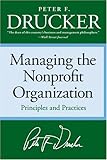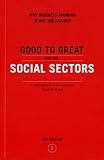Jesus Christ.
If you want to know how to live as a Christian, what to believe, what to do, what kind of attitude to have, what God is like, or anything else about ultimate things, all you have to do is look at Jesus. He is the foundation, goal, sum, essence, and everything of life and any organization that calls itself Christian.
I know we need to be more specific in our mission statements about what our specific goal is, within this framework.
But my point is that every Christian organization is imitating Jesus in some specific way, seeking to act in his power, and proclaiming his message. So Jesus does sum up what any Christian organization is seeking to do. Anybody should be able to look at what your organization does, then look at the portrait of Jesus in the gospels and epistles, and say “yes, that follows.”
And thus, if you are going to make a mistake in your mission, it’s better to make the mistake of being too broad and high-level, but getting the core (Jesus) right, than being highly specific but leaving the core implicit or assumed.
This is for Christian organizations. Secular organizations, or even businesses run by Christians, do not need to have Jesus in their mission statements explicitly. The “main actor” can be off stage at times, without undermining the fact that everything is about him.
I’m talking specifically about Christian ministries and churches — organizations that exist specifically to proclaim Jesus and make him known. For Christian organizations, Jesus Christ is the sum and substance of the entire mission, and it is right and wise to make that explicit.


